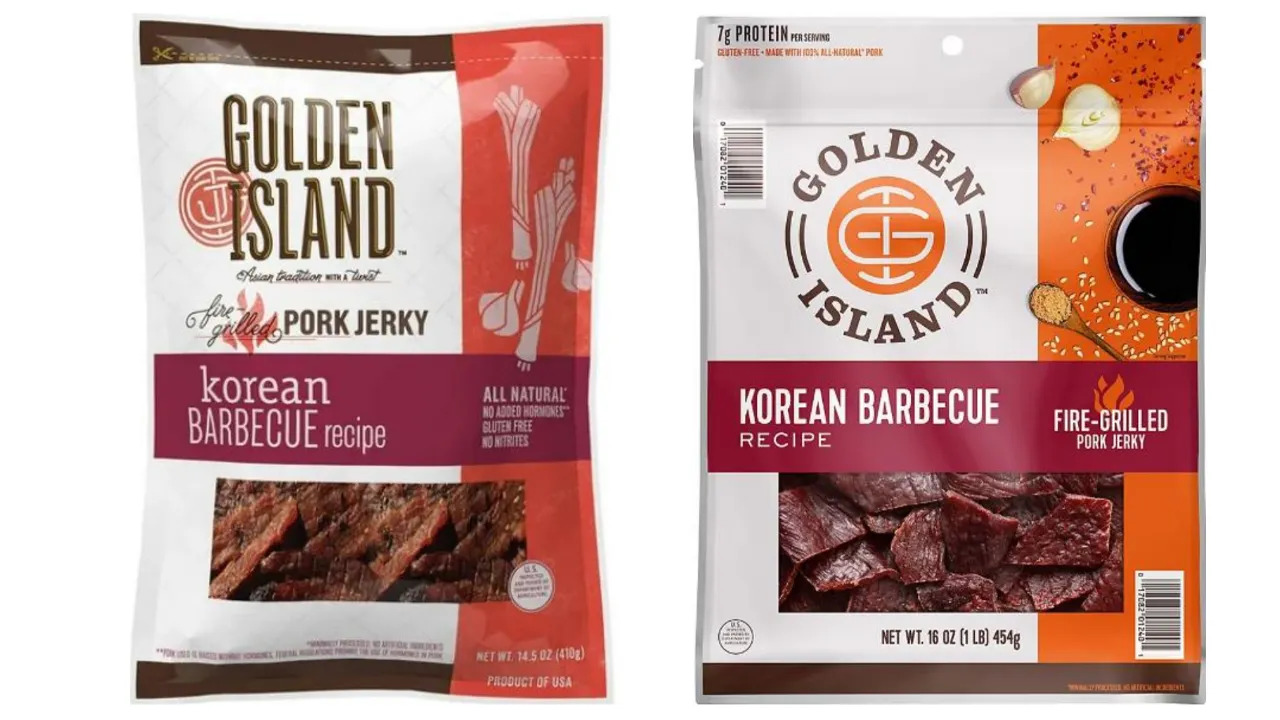
Chamberlains of London – Korean Barbecue Pork Jerky Recall has triggered widespread alarm across the United States after health officials confirmed potential metal contamination in over 2.2 million pounds of jerky. The recall, initiated by LSI Inc from Alpena, South Dakota, involves products sold at major retail outlets such as Costco and Sam’s Club. The U.S. Agriculture Department reported that customers discovered wiry metal pieces embedded in the meat, sparking urgent warnings from food regulators. Company representatives identified the source of contamination as a damaged conveyor belt used during production. Although no injuries have been confirmed, the scale of the recall underscores serious issues within industrial food safety systems. Consumers nationwide have been urged to dispose of the affected products or return them for refunds. This event reignites debates about food manufacturing practices and the growing risks linked to mass-produced snack items.
The Korean Barbecue Pork Jerky Recall covers two popular product sizes distributed across major retail networks. Customers can find affected packages in 14.5-ounce and 16-ounce sizes under the Golden Island Fire-Grilled Pork Jerky Korean Barbecue Recipe brand. The recall includes about four dozen lot codes with best-by dates ranging from October 23, 2025, to September 23, 2026. Each product shows the establishment number M279A inside the USDA inspection mark. LSI Inc voluntarily launched the recall after several consumers complained directly to the U.S. Department of Agriculture’s Food Safety and Inspection Service. Inspectors discovered that damaged parts from a conveyor belt caused the metal fragments found in the jerky. No injuries have occurred, but food safety experts continue to emphasize vigilance in quality control. Many advocates urge companies to strengthen preventive maintenance to rebuild public trust and protect the reputation of established brands in retail markets.
“Read about: Shocking Discovery! Eating ‘Squid Shot’ Could Secretly Be Damaging Your Health!”
Retail giants Costco and Sam’s Club have begun removing the affected Korean barbecue pork jerky from their inventories while alerting customers about refund procedures. Food safety alerts were distributed nationwide to prevent further consumption of the contaminated product. Consumers were advised not to eat the jerky under any circumstances. The recall has disrupted supply chains, forcing LSI Inc to pause production while evaluating new safety protocols. Industry analysts predict temporary shortages of certain jerky products as facilities undergo inspection and maintenance. Although officials confirmed no injuries, social media users expressed outrage over recurring food contamination incidents in the United States. Many questioned whether regulatory agencies conduct sufficient routine checks on large-scale manufacturers. The incident highlights growing consumer demand for stricter oversight and improved transparency across the food industry. It also emphasizes the need for stronger internal quality controls within processing plants.
Experts warn that the Korean Barbecue Pork Jerky Recall exemplifies recurring vulnerabilities in large-scale food production systems. Contamination with foreign materials such as metal, rocks, or insects remains a persistent problem in the U.S. food supply chain. Food safety specialists encourage consumers to report any unusual findings directly to manufacturers and regulatory bodies. Analysts also stress the importance of modernizing inspection equipment and enforcing stronger preventive maintenance schedules to reduce risk. The Food Safety and Inspection Service has reiterated that even isolated contamination can pose serious hazards, particularly if undetected by routine screening. LSI Inc is now under scrutiny to prove compliance with federal manufacturing standards and implement corrective actions. The case has reignited discussions about how automation and human oversight can coexist more effectively to safeguard consumer health in a highly mechanized industry.
The Korean Barbecue Pork Jerky Recall may ultimately serve as a catalyst for improved food safety practices across the meat processing sector. Industry leaders are expected to review their supply chains, machinery, and employee training programs to prevent future incidents. Some manufacturers have already pledged to invest in advanced metal detection systems and better conveyor maintenance routines. The U.S. Agriculture Department plans to collaborate with private companies to strengthen early detection measures. Consumer trust remains central to the recovery of affected brands, and experts believe transparency will play a key role in rebuilding credibility. As customers increasingly value authenticity and accountability, the jerky recall highlights the importance of strict adherence to food safety regulations. By addressing these vulnerabilities now, producers can minimize future crises and restore consumer confidence in ready-to-eat meat products across national markets.
This article is sourced from abcnews and for more details you can read at chamberlainsoflondon
Writer: Sarah Azhari
Editor: Anisa